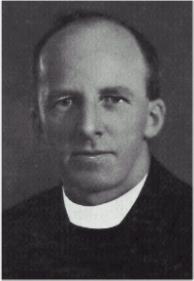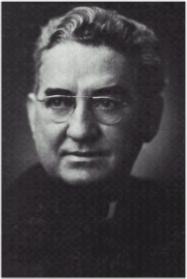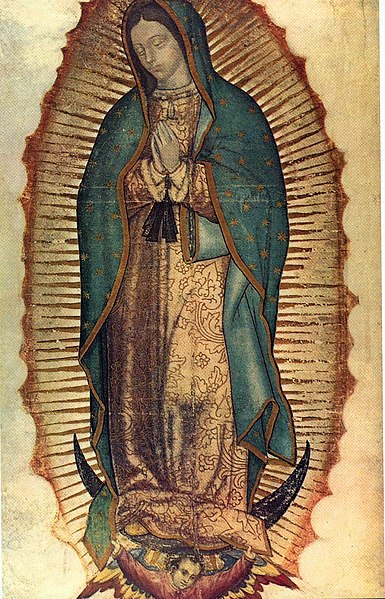
Historical Context of "Radio Replies"
By markomalley
If one recalls the time frame from which Radio Replies emerged, it can explain some of the frankness and lack of tact in the nature of the responses provided.
It was during this timeframe that a considerable amount of anti-Catholic rhetoric came to the forefront, particularly in this country. Much of this developed during the Presidential campaign of Al Smith in 1928, but had its roots in the publication of Alexander Hislop's The Two Babylons, originally published in book form in 1919 and also published in pamphlet form in 1853.
While in Britain (and consequently Australia), the other fellow would surely have experienced the effects of the Popery Act, the Act of Settlement, the Disenfranchising Act, the Ecclesiastical Titles Act, and many others since the reformation (that basically boiled down to saying, "We won't kill you if you just be good, quiet little Catholics"). Even the so-called Catholic Relief Acts (1778, 1791, 1829, 1851, 1871) still had huge barriers placed in the way.
And of course, they'd both remember the American Protective Association, "Guy Fawkes Days" (which included burning the Pontiff in effigy), the positions of the Whigs and Ultra-Torries, and so on.
A strong degree of "in your face" from people in the position of authoritativeness was required back in the 1930s, as there was a large contingent of the populations of both the US and the British Empire who were not at all shy about being "in your face" toward Catholics in the first place (in other words, a particularly contentious day on Free Republic would be considered a mild day in some circles back then). Sure, in polite, educated circles, contention was avoided (thus the little ditty about it not being polite to discuss religion in public, along with sex and politics), but it would be naive to assume that we all got along, or anything resembling that, back in the day.
Having said all of the above, reading the articles from the modern mindset and without the historical context that I tried to briefly summarize above, they make challenging reading, due to their bluntness.
The reader should also keep in mind that the official teaching of the Church takes a completely different tone, best summed up in the Catechism of the Catholic Church:
817 In fact, "in this one and only Church of God from its very beginnings there arose certain rifts, which the Apostle strongly censures as damnable. But in subsequent centuries much more serious dissensions appeared and large communities became separated from full communion with the Catholic Church - for which, often enough, men of both sides were to blame."269 The ruptures that wound the unity of Christ's Body - here we must distinguish heresy, apostasy, and schism270 - do not occur without human sin:
Where there are sins, there are also divisions, schisms, heresies, and disputes. Where there is virtue, however, there also are harmony and unity, from which arise the one heart and one soul of all believers.271818 "However, one cannot charge with the sin of the separation those who at present are born into these communities [that resulted from such separation] and in them are brought up in the faith of Christ, and the Catholic Church accepts them with respect and affection as brothers .... All who have been justified by faith in Baptism are incorporated into Christ; they therefore have a right to be called Christians, and with good reason are accepted as brothers in the Lord by the children of the Catholic Church."272
819 "Furthermore, many elements of sanctification and of truth"273 are found outside the visible confines of the Catholic Church: "the written Word of God; the life of grace; faith, hope, and charity, with the other interior gifts of the Holy Spirit, as well as visible elements."274 Christ's Spirit uses these Churches and ecclesial communities as means of salvation, whose power derives from the fullness of grace and truth that Christ has entrusted to the Catholic Church. All these blessings come from Christ and lead to him,275 and are in themselves calls to "Catholic unity."276
838 "The Church knows that she is joined in many ways to the baptized who are honored by the name of Christian, but do not profess the Catholic faith in its entirety or have not preserved unity or communion under the successor of Peter."322 Those "who believe in Christ and have been properly baptized are put in a certain, although imperfect, communion with the Catholic Church."323 With the Orthodox Churches, this communion is so profound "that it lacks little to attain the fullness that would permit a common celebration of the Lord's Eucharist."324
269 UR 3 § 1.
270 Cf. CIC, can. 751.
271 Origen, Hom. in Ezech. 9,1:PG 13,732.
272 UR 3 § 1.
273 LG 8 § 2.
274 UR 3 § 2; cf. LG 15.
275 Cf. UR 3.
276 Cf. LG 8.
322 LG 15.
323 UR 3.
324 Paul VI, Discourse, December 14, 1975; cf. UR 13-18.
|
 |
Rev. Dr. Leslie Rumble, M.S.C.
"I was brought up as a Protestant, probably with more inherited prejudices than most non-Catholics of these days. My parents were Anglican and taught me the Angelican faith. My 'broad-minded' protestant teachers taught me to dislike the Catholic Church intensely. I later tried Protestantism in various other forms, and it is some thirty years since, in God's providence, I became a Catholic. As for the 'open, free, sincere worship' of a Protestant Church, I tasted it, but for me it proved in the end to be not only open, but empty; it was altogether too free from God's prescriptions."
Eventually, Leslie became a priest of the Missionaries of the Sacred Heart.
In 1928, Fr. Rumble began a one-hour 'Question Box' program on 2SM Sydney, N.S.W. radio on Sunday evenings that was heard all over Australia and New Zealand. For five years he answered questions on every subject imaginable that had been written to him from all over that part of the globe. His first show began with a classic introduction:
"Good evening, listeners all. For some time I have been promising to give a session dealing with questions of religion and morality, in which the listeners themselves should decide what is of interest to them. Such a session will commence next Sunday evening, and I invite you to send in any questions you wish on these subjects . . . So now I invite you, non-Catholics above all, to send in any questions you wish on religion, or morality, or the Catholic Church, and I shall explain exactly the Catholic position, and give the reasons for it. In fact I almost demand those questions. Many hard things have been said, and are still being said, about the Catholic Church, though no criminal, has been so abused, that she has a right to be heard. I do not ask that you give your name and address. A nom de plume will do. Call yourself Voltaire, Confucius, X.Y.Z., what you like, so long as you give indication enough to recognize your answer."
"By the summer of 1937, the first edition of Radio Replies was already in print in Australia, financed by Rt. Rev. Monsignor James Meany, P.P. - the director of Station 2SM of whom I am greatly indebted."
"I have often been mistaken, as most men at times. And it is precisely to make sure that I will not be mistaken in the supremely important matter of religion that I cling to a Church which cannot be mistaken, but must be right where I might be wrong. God knew that so many sincere men would make mistakes that He deliberately established an infallible Church to preserve them from error where it was most important that they should not go wrong."
Rev. Charles Mortimer Carty
|
 |
I broadcast my radio program, the Catholic Radio Hour, from St. Paul, Minnesota.
I was also carrying on as a Catholic Campaigner for Christ, the Apostolate to the man in the street through the medium of my trailer and loud-speaking system. In the distribution of pamphlets and books on the Catholic Faith, Radio Replies proved the most talked of book carried in my trailer display of Catholic literature. As many of us street preachers have learned, it is not so much what you say over the microphone in answer to questions from open air listeners, but what you get into their hands to read. The questions Fr. Rumble had to answer on the other side of the planet are same the questions I had to answer before friendly and hostile audiences throughout my summer campaign."
I realized that this priest in Australia was doing exactly the same work I was doing here in St. Paul. Because of the success of his book, plus the delay in getting copies from Sydney and the prohibitive cost of the book on this side of the universe, I got in contact with him to publish a cheap American edition.
It doesn't take long for the imagination to start thinking about how much we could actually do. We began the Radio Replies Press Society Publishing Company, finished the American edition of what was to be the first volume of Radio Replies, recieved the necessary imprimatur, and Msgr. Fulton J. Sheen agreed to write a preface. About a year after the publication of the first edition in Australia, we had the American edition out and in people's hands.
The book turned into a phenomena. Letters began pouring into my office from every corner of the United States; Protestant Publishing Houses are requesting copies for distribution to Protestant Seminaries; a few Catholic Seminaries have adopted it as an official textbook - and I had still never met Dr. Rumble in person.
To keep a long story short, we finally got a chance to meet, published volumes two and three of Radio Replies, printed a set of ten booklets on subjects people most often asked about, and a few other pamphlets on subjects of interest to us.
Fr. Carty died on May 22, 1964 in Connecticut.
"Firstly, since God is the Author of all truth, nothing that is definitely true can every really contradict anything else that is definitely true. Secondly, the Catholic Church is definitely true. It therefore follows that no objection or difficulty, whether drawn from history, Scripture, science, or philosophy, can provide a valid argument against the truth of the Catholic religion."
Biographies compiled from the introductions to Radio Replies, volumes 1, 2 and 3.
Source: www.catholicauthors.com
